FM: Iran ready for Vienna deal but not at cost of its red lines
Foreign Minister Hossein Amir-Abdollahian says Iran is ready for a good, strong and lasting agreement in Vienna, but not at the expense of crossing its red lines.
Marathon talks in the Austrian capital are reportedly down to negotiating the footnotes of an agreement, but a state of flux in Washington on recommitting the US to the 2015 nuclear agreement and undoing its wrongs against Tehran is bedeviling the efforts.
“We believe that instead playing for time and with words and wasting time, the American side should take the right path and act pragmatically,” Amir-Abdollahian said at a news conference in Beirut Thursday, adding that the vital issue of the removal of sanctions on Iran is not fully resolved yet.
“We are ready for a good, strong and stable agreement, but not at the price of our red lines," he said. "If the United States is pragmatic, a deal can be reached in the short term," he added.
White House national security adviser Jake Sullivan said on Wednesday the United States and its allies have made progress in Vienna talks but issues remain, and it is unclear if they will be resolved.
The negotiations began last April between Britain, China, France, Germany, Iran and Russia. Last week, The Wall Street Journal wrote that the final hurdle to reviving the deal is lifting terrorism sanctions on the Islamic Revolution Guards Corps (IRGC). The issue, it said, was galvanizing opposition to the deal in Washington and among Middle Eastern allies such as Israel.
Amir-Abdollahian arrived in Beirut to discuss issues of mutual interest as well as unfolding developments in the Middle East region with senior Lebanese authorities.
Heading a high-ranking diplomatic delegation, the top Iranian diplomat arrived from Damascus as part of a regional tour that includes high-profile meetings.
According to Lebanon's official National News Agency, Amir-Abdollahian was due to meet President Michel Aoun, Parliament Speaker Nabih Berri, Prime Minister Najib Mikati, his Lebanese counterpart Abdallah Bou Habib as well as a number of political figures during his visit.
“We are in Beirut because the relationship between Iran and Lebanon is excellent. We have regular and constructive consultations with Lebanese officials on bilateral, regional and international issues,” he told reporters upon arrival at Beirut airport.
“From my last trip to Beirut up until now, many regional and international developments have taken place. It is, therefore, necessary to have more detailed consultations with dear Lebanese officials, given the resolve that exists both in the Islamic Republic of Iran and Lebanon.”
Amir-Abdollahian said, “We declare once again that we are ready to continue our support and important trade and economic cooperation with Lebanon."
He said that during a meeting with Mikati on the sidelines of the 58th Munich Security Conference a month ago, he informed the Lebanese premier of Iran's readiness to establish two 1,000-megawatt power stations in Lebanon and to fully develop trade and economic cooperation with the country.
"The Islamic Republic of Iran has proved that it will stay with its friends in difficult days. We have made other proposals to work with Lebanon to overcome the current difficult economic situation, which will be discussed by senior Lebanese officials."
He also praised the Lebanese resistance and reiterated Iran's support for the political process in Lebanon which will hold a parliamentary election on May 15.
"The name of Lebanon is tied to the resistance. If it were not for the Lebanese resistance and the Lebanese people, Beirut would be under the boots of the occupiers of the fake Israeli regime today.
"If it were not for the resistance and the defenders of holy shrines in the region, Daesh would be present in our region today and the region would take a different shape."
Amir-Abdollahian said elections are a clear example of strong democracy in Lebanon. "We are confident that with the wisdom of the Lebanese leaders and the role of the Lebanese people, there will be wholly successful elections to mark a bright future for Lebanon."
Later on Thursday, Iran’s top diplomat met with a number of high-profile officials from Palestinian resistance movements, including Islamic Jihad leader Ziyad al-Nakhalah and senior Hamas official Mousa Mohammed Abu Marzook, at the Iranian embassy in Beirut.
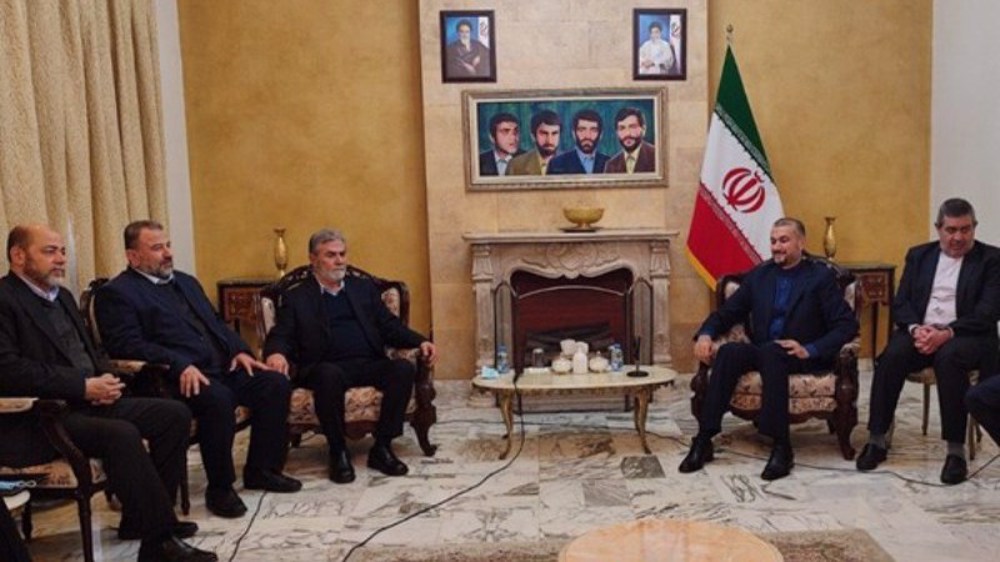
"The Islamic Republic of Iran loudly supports the formation of a unified Palestinian state throughout the historic land of Palestine, with al-Quds as its capital," Amir-Abdollahian said at the news conference.
"The political plan of the Islamic Republic of Iran for Palestine has been registered in the United Nations. While we see resistance as the only option for the formation of a unified Palestinian state, we believe that holding a referendum among the original Palestinian, Muslim, Jewish and Christian populations can determine the political future of Palestine by direct vote of the Palestinian people."
The Iranian minister also said Iran has received contradictory statements from Saudi Arabia on the renewal of bilateral relations.
"The Islamic Republic welcomes a natural return to bilateral relations with Saudi Arabia. However, mixed messages have been received from the Kingdom. We expect that the Saudis will act in the interest of the region," he said.
Saudi Arabia and Iran started direct talks last year to try to resolve their differences. Iraq's foreign minister, who brokers talks between the two sides in Baghdad, had said the fifth round of talks would start on March 16.
However, Iran's media reports said Tehran had suspended talks with Saudi Arabia for now.
The announcement came after Saudi Arabia said earlier this month that it had executed 81 men in its biggest mass execution in decades. Activists said 41 were from the eastern Qatif region, which has historically been a flashpoint between the Saudi regime and Shia Muslims.
At the news conference, Amir-Abdollahian said Iran condemns the Saudi-led war on Yemen which enters its 8th year.
"We condemn the war in Ukraine, Afghanistan and Yemen and everywhere in the world. Displaced people, whether in Ukraine, Palestine, Yemen or Afghanistan, hurt the feelings of every human being."
Amir-Abdollahian arrived in Syria on Wednesday and held meetings with Syrian President Bashar al-Assad, Foreign Minister Faisal Mekdad, and Syria’s National Security Advisor Ali Mamluk about various issues, including Tehran-Damascus bilateral relations as well as regional and international matters.
Belgium files to intervene in South Africa’s ICJ genocide case against Israel
Netanyahu appears in court for 65th time in ongoing corruption trial
Iran's government submits $111bn budget bill for year 1405
1.6 million Palestinians face acute food insecurity in Gaza: UNRWA
VIDEO | Free the Palestine hunger strikers in British jails ft. Calla Walsh
VIDEO | Press TV's news headlines
Iranian missile pierced window of Israeli intel chief's office in June, says senior general
VIDEO | Paper state politics


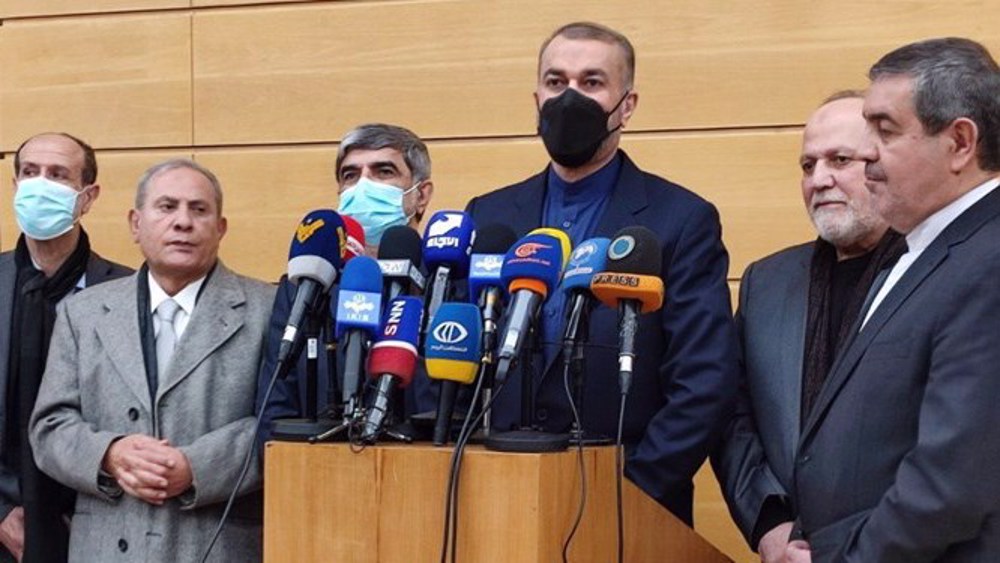
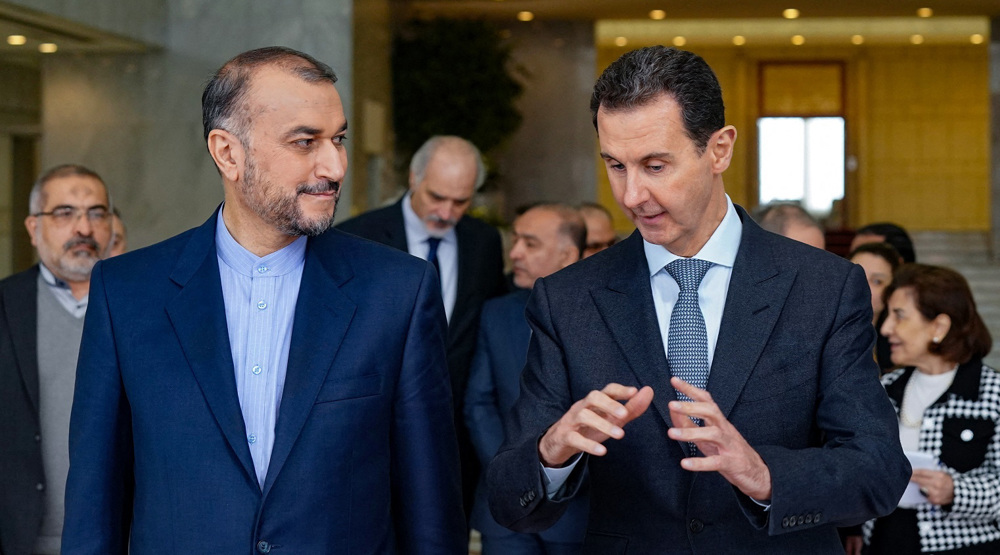
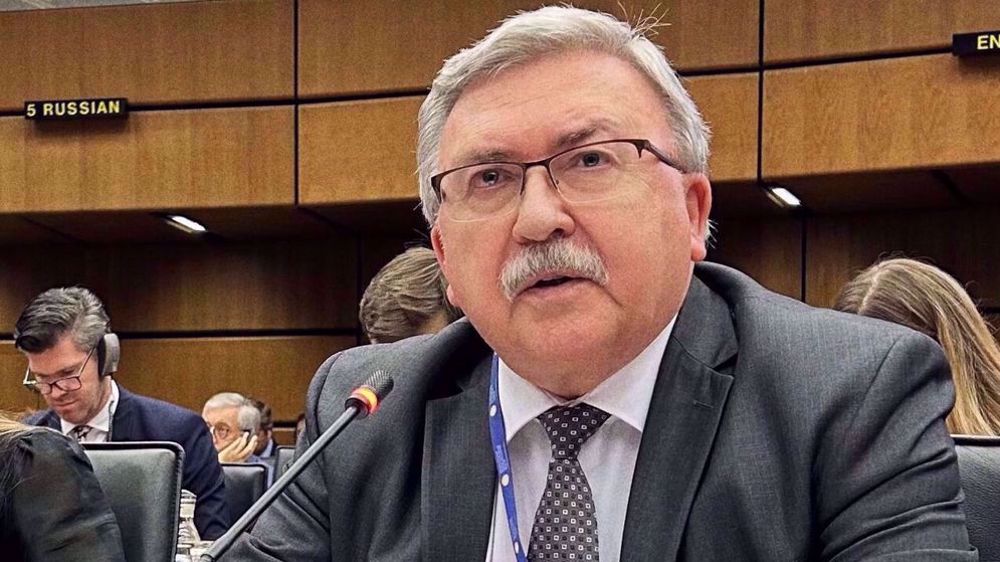
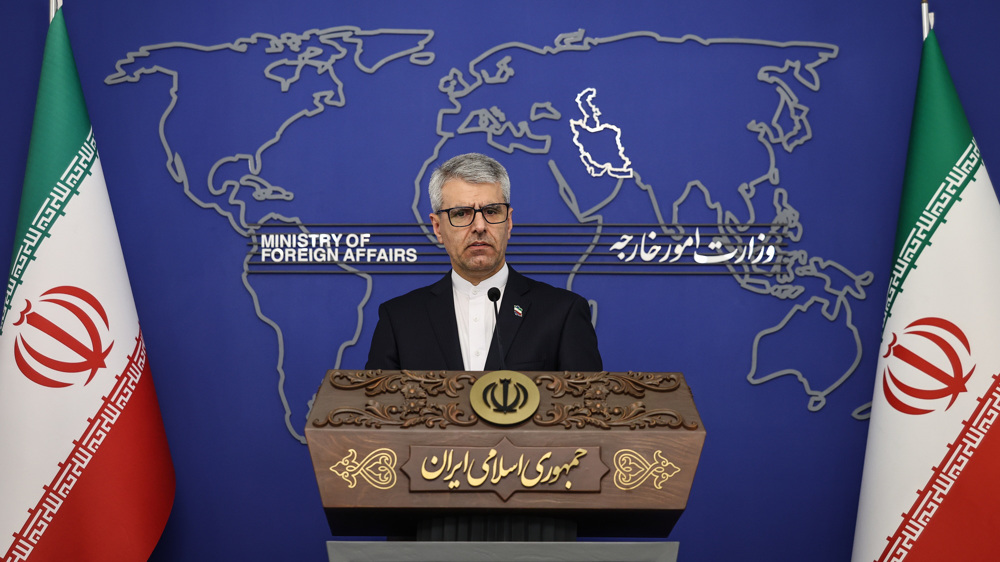
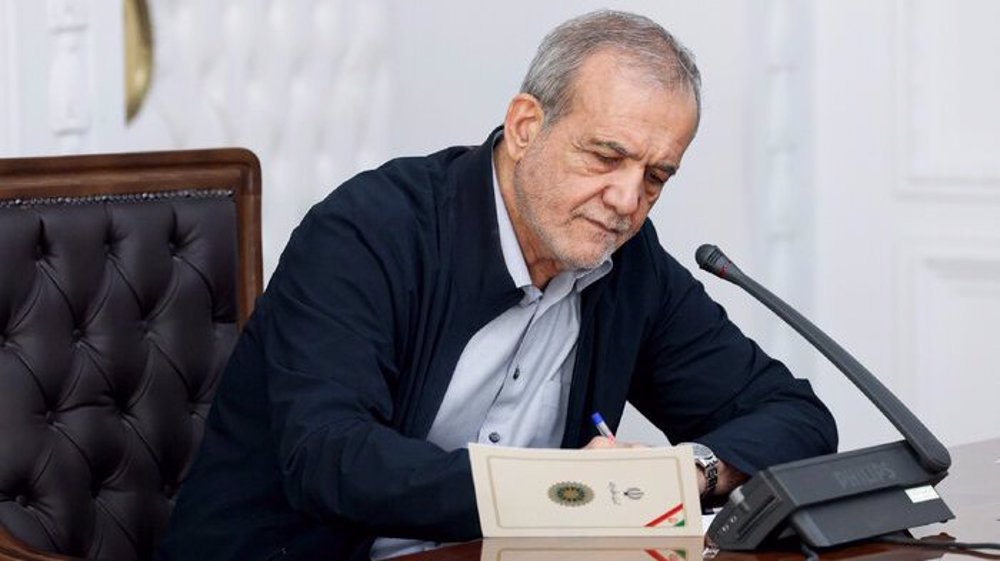




 This makes it easy to access the Press TV website
This makes it easy to access the Press TV website